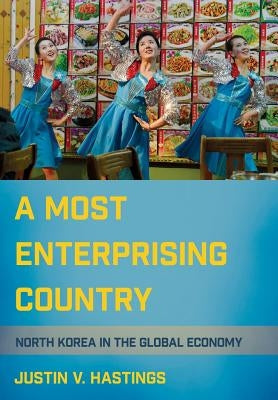Description
North Korea has survived the end of the Cold War, massive famine, numerous regional crises, punishing sanctions, and international stigma. In A Most Enterprising Country, Justin V. Hastings explores the puzzle of how the most politically isolated state in the world nonetheless sustains itself in large part by international trade and integration into the global economy. The world's last Stalinist state is also one of the most enterprising, as Hastings shows through in-depth examinations of North Korea's import and export efforts, with a particular focus on restaurants, the weapons trade, and drug trafficking. Tracing the development of trade networks inside and outside North Korea through the famine of the 1990s and the onset of sanctions in the mid-2000s, Hastings argues that the North Korean state and North Korean citizens have proved pragmatic and adaptable, exploiting market niches and making creative use of brokers and commercial methods to access the global economy.North Korean trade networks--which include private citizens as well as the Kim family and high-ranking elites--accept high levels of risk and have become experts at operating in the blurred zones between licit and illicit, state and nonstate, and formal and informal trade. This entrepreneurialism has allowed North Korea to survive; but it has also caused problems for foreign firms investing in the country, emboldens the North Korean state in its pursuit of nuclear weapons, and may continue to shape the economy in the future.
Author: Justin V. Hastings
Publisher: Cornell University Press
Published: 12/01/2016
Pages: 240
Binding Type: Hardcover
Weight: 1.11lbs
Size: 9.00h x 6.00w x 0.69d
ISBN13: 9781501704901
ISBN10: 1501704907
BISAC Categories:
- Political Science | International Relations | Trade & Tariffs
- Political Science | Political Economy
- Political Science | World | Asian
About the Author
Justin V. Hastings is Senior Lecturer in International Relations and Comparative Politics at the University of Sydney. He is the author of No Man's Land: Globalization, Territory, and Clandestine Groups in Southeast Asia, also from Cornell.

